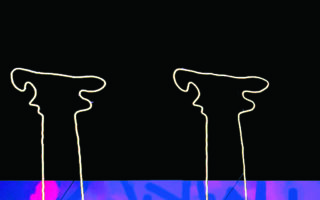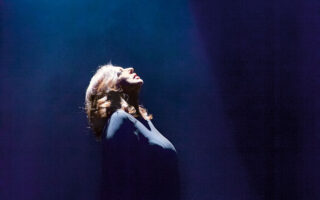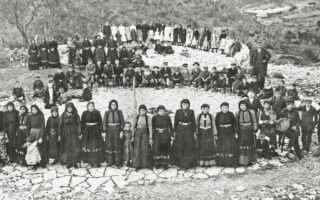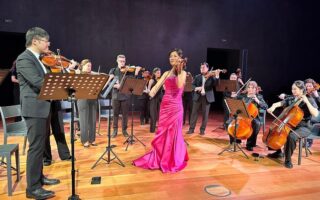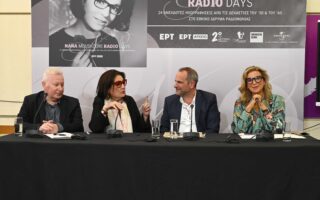Big tales of envy, love, passison and murder
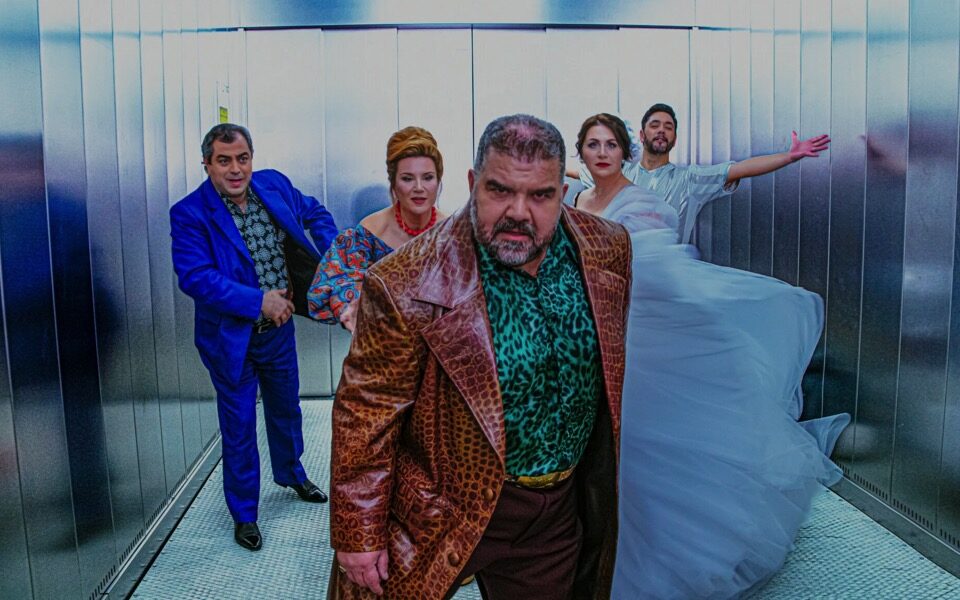
Internationally acclaimed Greek baritone Dimitri Platanias is taking the stage at the Greek National Opera with two roles that have already earned him rave reviews in London and elsewhere: Alfio in Pietro Mascagni’s “Cavalleria rusticana” and Tonio in Ruggero Leoncavallo’s “Pagliacci,” enduring representatives of the Italian verismo movement.
“Singing these two roles, these two pieces in one night, is like singing one huge opera. This is why it is so important to pace your voice so that it is intact by the time you can reach the finale of ‘Pagliacci,’” Platanias tells Kathimerini ahead of his appearance at the GNO’s Stavros Niarchos Hall.
“The two operas are similar in terms of style and vocals, because the composers’ period coincide. However, ‘Pagliacci’ is definitely more demanding for the baritone, mainly because of the prologue. It is an absolute gem but it is very demanding. The same is the case with the duet with Nedda in the final scene; the phrase ‘La commedia e finita’ needs to be delivered with a lot of forethought and concentration,” he says.
‘Renewal is essential, and reaching out to a new audience, which means approaching younger people’
As far as Alfio is concerned, Platanias says that it is a “misunderstood” role which many believe to be much easier than it appears. The challenge, he says, lies in the first aria, which “must be sung ‘cold,’ as soon as you enter the scene, with no opportunity to warm up your voice.”
In both operas, too, jealousy is a driving force. In “Cavalleria rusticana,” it is there from the onset, in Santuzza, whose beloved, the tenor Turiddu, has his heart set on Lola, who is married to Alfio. To spite Turiddu, Santuzza reveals the affair to Alfio, who seeks revenge not as a matter of jealousy, but as a matter of honor.
“The same is the case in ‘Pagliacci,’ though what is interesting here is that it is not the protagonist who is pulling the strings, but the baritone, Tonio, who provokes envy in another. It’s a Iago-like situation. But the jealousy here is double-edged. It starts with Tonio, who covets Nedda, the wife of his boss, Canio, knowing he can never have her. By uncovering her affair with Silvio, he passes on his jealousy, multiplied this time, to Canio, leading him to commit murder, twice. So, we have two jealous people but one makes this jealousy grow and transmits it to the other,” says Platanias.
The operas are directed by Nikos Karathanos, who has set the plots in a completely different time and place.
“The only thing the stage settings have in common is an abstract metal structure. If you don’t know the words, you don’t know the action is originally set in Sicily. Here, you immediately know where they are set. I won’t say where, because I don’t want to give it away. But both have vivid local color and are instantly recognizable. The plots don’t change – they are still big tales of envy, love, passion and murder – but the backdrop is absolutely nothing like we’ve seen before,” says Platanias.
The time is not the 1950s or 60s, or even the 1800s, but “it is possibly in a modern age, sometime in the 20th century,” says the baritone, enigmatically.
“What I believe ultimately matters in how any opera is directed is that it is convincing. That is the director’s job: to take the story and make it so that people get it. Sure, a ‘classic’ staging is very nice every once in a while, and I like them too, but I don’t think I can stand doing only ‘classic’ stagings anymore. Renewal is essential, and reaching out to a new audience, which means approaching younger people. And I find Nikos Karathanos’ ideas very interesting. He is telling the story, but in his own way and I don’t think that anyone seeing the operas for the first time will have any trouble understanding the stories,” notes Platanias.
The performances of the GNO’s “Cavalleria rusticana” and “Pagliacci” are taking place on January 25 and 28 and on February 1, 4, 8 and 11, at the Stavros Niarchos Hall (Stavros Niarchos Foundation Cultural Center, 364 Syngrou, Neo Faliro, snfcc.org). For details and tickets, visit nationalopera.gr.
